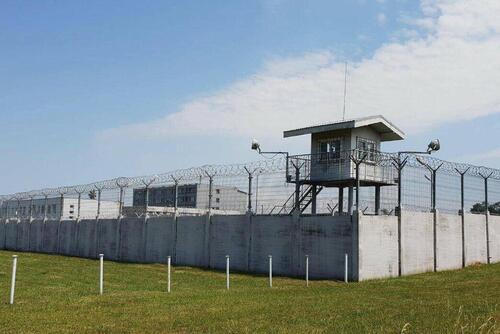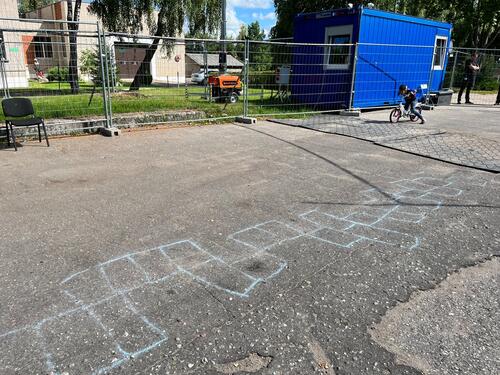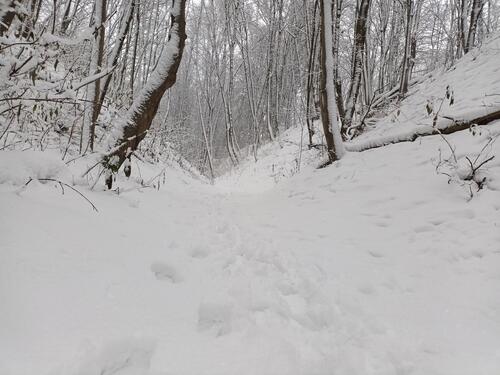Asylum seekers and migrants, including families with young children, are being subjected to repeated pushbacks between the borders of Lithuania and Belarus with little to no access to basic needs or fair asylum procedures.
Médecins Sans Frontières (MSF) is appalled by the medical and humanitarian impact of Lithuania’s hostile migration policies towards people on the move, as well as the use of inhumane practices such as pushbacks in response to people seeking safety.
There have been numerous instances of Lithuanian authorities forcibly returning migrants and refugees to Belarus, resulting in the breach of their rights. The Lithuanian State Border Guard Service (SBGS) publicly claims to have carried out thousands of pushbacks at the border since the start of the year.
I was traumatised and I just wished to go anywhere there was shelter so it would put an end to our suffering.Cassandra*, a mother pushed back by authorities at the border
“It is unacceptable that the Lithuanian government is trying to normalise this mistreatment and denial of rights in response to the movement of people who have fled their countries out of desperation, in search of safety and a better life,” says Georgina Brown, MSF country manager in Lithuania.
“People on the move in Lithuania are entitled to dignified and humane treatment, including safety and international protection,” she says. “And yet we know that many people trying to enter Lithuania are being denied all of this and instead find themselves stranded, isolated, and abused.”
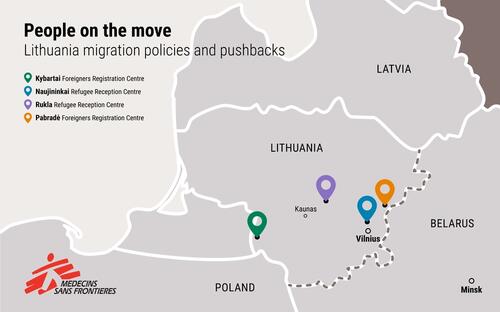
Some people have told our teams that they have been repeatedly pushed back and forth across the border over days, or even weeks.
“For 30 days, we didn’t settle in one place. We went back and forth around 10 times between Belarus and Lithuania during that time,” says Cassandra*, a mother who was pushed back and forth by authorities between both countries over 30 days.
“The guards kept moving us in and out, in and out, and back and forth,” she says. “Once we were captured, we were given some tinned food which was expired and dry. I couldn’t even eat that, as I kept it for my children.”
“Then they would put us back in cars and take us back to the border,” continues Cassandra. “It was a cat and mouse situation. I was traumatised and I just wished to go anywhere there was shelter so it would put an end to our suffering.”
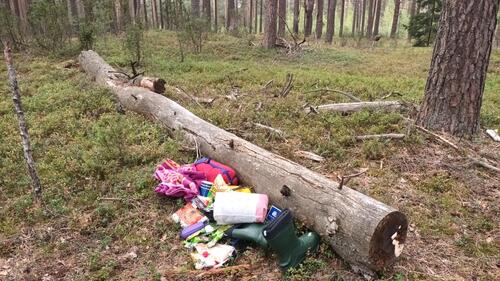
Such repeat pushbacks compound the distress and trauma faced by migrants and asylum seekers at the borders of the European Union.
“People who already faced several traumas such as sexual violence and torture in their country of origin are now faced with the new trauma of violent pushbacks,” says Heidi Berg, MSF psychologist in Lithuania.
“They feel as though they are being hunted and chased across the border again and again,” she says. “This leaves them feeling dehumanised and with an even higher level of stress and anxiety.”
They feel as though they are being hunted and chased across the border again and again. This leaves them feeling dehumanised and with an even higher level of stress and anxiety.Heidi Berg, MSF psychologist in Lithuania.
Fear of being detected and pushed back is also leading people on the move in Lithuania to try and cross isolated areas with no access to basic needs and medical aid.
MSF teams in Lithuania have treated people for skin and lower limb conditions developed after walking long distances through forests and swamps, as well as exhausted families and individuals who have slept exposed to the elements, often without adequate clothing and footwear.
Our teams are aware of people who have contracted gastrointestinal illnesses after being forced to eat berries and plants and drink swamp water out of hunger, thirst and desperation.
As winter approaches, we are alarmed about even more serious consequences for the physical and mental health of people subjected to such mistreatment.
Lithuania’s hostile migration policies are yet another example of an EU member state deliberately creating unsafe conditions for people to seek asylum at its borders.
People will continue to make desperate journeys to where they believe they can seek international protection, safety and a better future, regardless of the risks or lack of welcome they may face, and despite the lack of safe and legal routes.
The Lithuanian government must not continue with such abusive responses to vulnerable people seeking safety at its borders.
“People have fled conflict, persecution, and danger with little more than the clothes on their back in search of international protection,” says Brown.
“As winter approaches and temperatures fall, Lithuanian authorities must urgently cease these cruel practices and respond to the needs of those trying to enter the country with humanity,” she says.
*Name changed to protect identity




